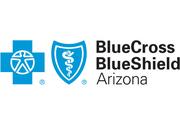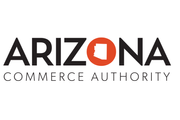
At Blue Cross Blue Shield of Arizona, we dissected our data on COVID and uncovered some eye-opening statistics. What we learned is highly concerning and is likely to have negative health impacts for employers and their employees for years to come.
With a 15% higher infection rate and a 20% higher death rate than the national average, according to the Centers for Disease Control and Prevention, COVID had its way with Arizona. In January 2021, 150 people died per day in Arizona, and in July 2022, four people are still dying each day. If that is not enough, Arizona’s COVID hospitalization costs are the fifth highest in the nation, according to Fair Health.
Although the overall birth rate has been declining, C-section rates during COVID were up 6.6% compared to pre-COVID rates (32.3% of births resulted in a C-section during COVID versus 30.5% before COVID). As we think back on the capacity challenges hospitals were having, it’s no wonder. Moms and their physicians made the wise decision to schedule a certain delivery date and ensure a hospital bed versus risking a full hospital with an unknown delivery time. The costs can affect employers and their employees as the average C-section delivery costs are about 80% more than a vaginal birth. The impact is that, overall, maternity costs went up more than expected because more moms delivered via C-section.
While birth deliveries were/are being handled differently to protect patients from COVID, employees have also become more vulnerable to other diseases. As they have tried to protect themselves from the impact of COVID, important health screenings were cancelled or postponed. For example, cancer screenings were down almost 25% as compared to pre-COVID years. Did COVID cure cancer? No, but it did impact the early detection of cancer. It seemed logical at the time — why risk contracting a known disease by going to the doctor and having a screening for a potential unknown disease?
Non-COVID vaccines, like mumps and measles, are also down (5%). And many chronic disease screenings are down. For example, retinopathy screenings are down 30% and cholesterol screenings are down 15%.
Meanwhile, behavioral health visits are up almost 80% as compared to pre-COVID years. The fear and isolation caused by COVID unleashed a storm of behavioral health needs. The Arizona Department of Health Services observed a rise in deaths due to suicide and drug overdose during the pandemic. In 2020, between September and April, overdose deaths were up 38% compared to opioid overdoses in 2019. The first six months of 2020 were one of the deadliest periods in the state.
The bottom line is that, as employees sought protection from COVID, they became more vulnerable in other areas of health. The message in the data is crystal clear. It’s time for employees to take back their health.
We encourage everyone to schedule their preventive visits. Go have that colonoscopy. Go get that mammography done. Have that mole on your back examined. Get your regular vaccines, and make sure your kids are up to date on their vaccines. Have your cholesterol checked. And lastly, if you are experiencing behavioral health concerns, reach out for help.
To find out how Blue Cross Blue Shield of Arizona (BCBSAZ) can help keep your employees on track with their health, contact us at 844-4-BCBSAZ (844-422-2729) or visit us at azblue.com/employers.
BCBSAZ is committed to helping Arizonans get healthier faster and stay healthier longer. With a mission to inspire health and make it easy, BCBSAZ offers health insurance and related services to more than 1.9 million customers. BCBSAZ, a nonprofit company, is an independent licensee of the Blue Cross Blue Shield Association. The company and its subsidiaries employ more than 2,500 people in its Phoenix, Flagstaff and Tucson offices.


